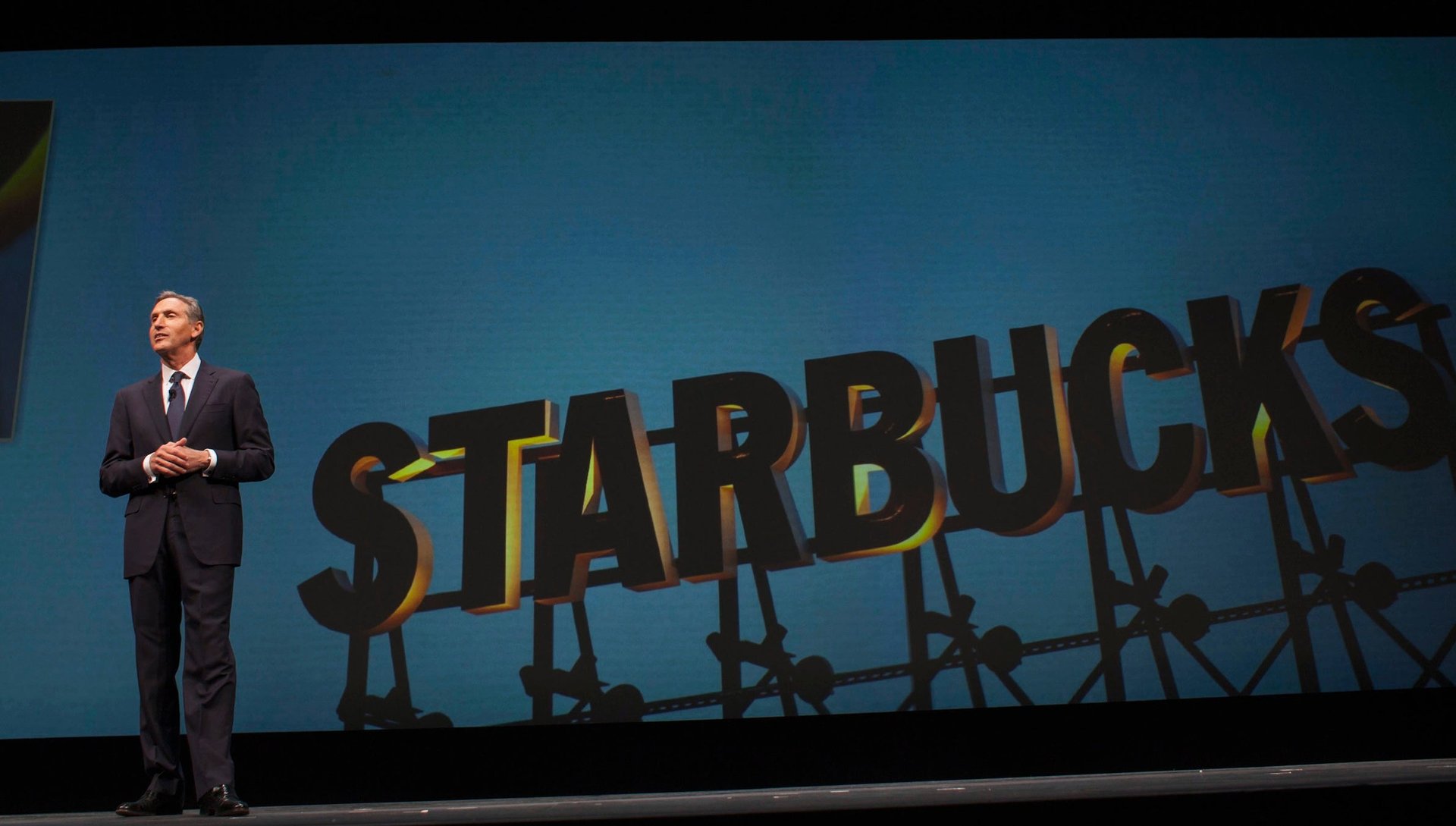Howard Schultz and Starbucks are trying to shift how veterans are hired
Starbucks CEO Howard Schultz likes to experiment in things other than pumpkin lattes. He has inserted himself and his company with varying degrees of success into myriad social issues. His newest focus is on American veterans, and includes the following: a commitment to hiring 10,000 vets and military spouses over five years, work by his family foundation on expanding services and training, and the writing of a book with Washington Post correspondent Rajiv Chandrasekaran on some of the overlooked stories of this generation of veterans.


Starbucks CEO Howard Schultz likes to experiment in things other than pumpkin lattes. He has inserted himself and his company with varying degrees of success into myriad social issues. His newest focus is on American veterans, and includes the following: a commitment to hiring 10,000 vets and military spouses over five years, work by his family foundation on expanding services and training, and the writing of a book with Washington Post correspondent Rajiv Chandrasekaran on some of the overlooked stories of this generation of veterans.
“The concern that I have, candidly, is that six month to a year from now that these veterans won’t be vilified but they won’t be honored, it’ll be a distant memory,” Schultz said in an interview with Quartz. “In addition to that, veterans need to come home in a way that transitions them into civilian life with a job.”
Only a tiny fraction of the American population (about 1%) participated in the wars that followed 9/11. That means most citizens and their employers aren’t related to or interacting with veterans, which creates a big gap and lack of understanding. Schultz was struck by this during a series of visits to bases and hospitals, and interviews with veterans.
Hiring veterans is a more sensitive process, Schultz says. He recalls hearing a veteran tell him that he was more anxious about going to a job interview than he would be about going back to Afghanistan. It takes careful effort and a change of attitude to overcome that, which Schultz is trying to spread beyond Starbucks.
“We’ve hired over 1000 veterans in the past year or so and we’ve learned a few things. One is that if they come for an interview, they generally do not have the identical skill base that is applicable to the job they’re interviewing for,” Schultz says.
Employers need to be aware of that, and put more emphasis on the leadership skills veterans tend to have. The best people to do that, and help veterans over the hump, are those that have been there, he says.
Another lesson is to have someone in human resources who focuses on veterans and understands how to communicate with them, Schultz says. “Because the language is different. Anxiety is high. We need to do what we can can we do to create a common language.”
After hiring a veteran, Starbucks has an active armed forces network to support and counsel them throughout their tenure.
If Starbucks can give vets ”a sense of belonging and they land softly in civilian life and they want to go somewhere else, we feel as though we’ve done our job. We certainly want them to stay but not everyone is going to,” says Schultz.